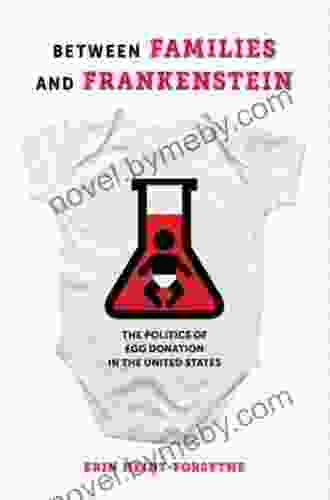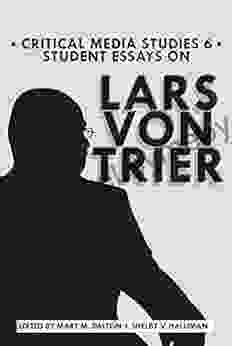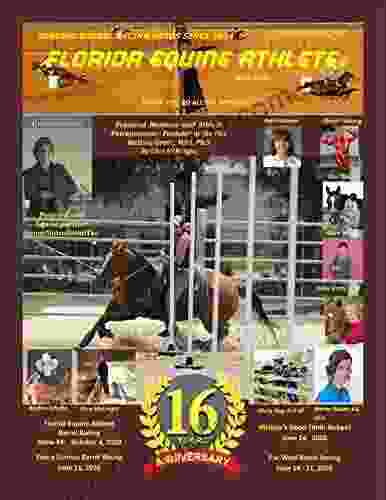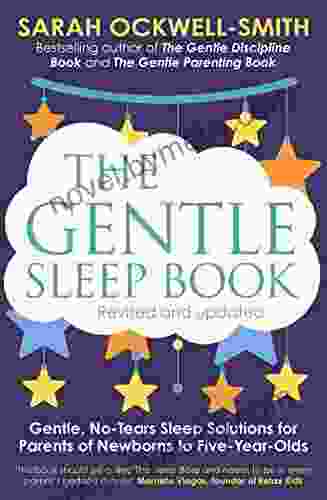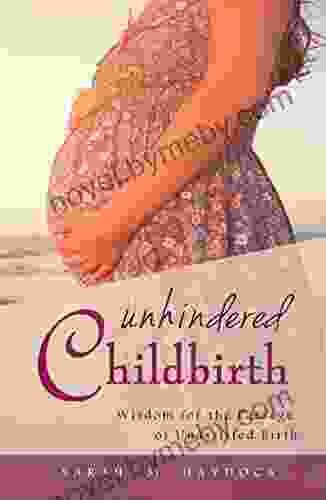Unveiling the Politics of Egg Donation in the United States: A Comprehensive Guide

4.7 out of 5
| Language | : | English |
| File size | : | 3267 KB |
| Text-to-Speech | : | Enabled |
| Screen Reader | : | Supported |
| Enhanced typesetting | : | Enabled |
| Word Wise | : | Enabled |
| Print length | : | 296 pages |
| Lending | : | Enabled |
The realm of assisted reproductive technologies (ARTs) has ushered in a transformative era for individuals and couples struggling with infertility. Among these technologies, egg donation stands out as a complex and often controversial topic, deeply intertwined with a myriad of political, ethical, and societal considerations. In the United States, the politics of egg donation have been particularly contentious, shaping the landscape of fertility treatments and surrogacy.
The Ethics of Egg Donation
At the heart of the politics of egg donation lies a complex web of ethical dilemmas. Some argue that egg donation is an altruistic act that enables women to share their fertility with those who are unable to conceive on their own. However, concerns have been raised regarding the potential exploitation of egg donors, particularly those who are financially vulnerable or from marginalized communities.
Critics argue that egg donation may perpetuate a system of reproductive inequality, where women with limited resources are compensated for their genetic material while those who are unable to afford such treatments are left out. Moreover, the informed consent process surrounding egg donation has been scrutinized, with some questioning whether donors fully understand the potential risks and long-term implications of their decision.
Legal Complexities
The legal landscape surrounding egg donation in the United States is equally complex and fragmented. Federal laws, such as the Uniform Parentage Act, provide some general guidelines, but many aspects of egg donation are regulated at the state level. This has led to a patchwork of laws that vary significantly from state to state.
One of the most contentious legal issues is the question of surrogacy. In some states, surrogacy is legal and regulated, while in others it is prohibited or severely restricted. This has created a legal minefield for intended parents and egg donors alike, as the legal status of their relationship and the rights of all parties involved can vary depending on the jurisdiction.
Another legal concern is the issue of donor anonymity. In some states, egg donors have the right to remain anonymous, while in others their identities can be disclosed to the intended parents or the child. This legal uncertainty has raised privacy concerns for egg donors, as well as concerns about the impact of donor anonymity on the child's development.
Societal Implications
Beyond the ethical and legal complexities, egg donation also has profound societal implications. It challenges traditional notions of family and parenthood, and raises questions about the commodification of human reproduction.
Some argue that egg donation reinforces heteronormative ideals by privileging the traditional family structure of a mother, father, and biological child. Others see it as a form of reproductive freedom, allowing individuals and couples to pursue their dreams of having a family regardless of their biological circumstances.
The commercialization of egg donation has also raised concerns about the potential for exploitation. Egg donor agencies often charge hefty fees to facilitate the process, and some critics argue that this commodification of human reproduction is unethical and undermines the altruistic nature of donation.
The Path Forward
Navigating the politics of egg donation in the United States is a complex and challenging endeavor. There is no easy way to resolve the ethical, legal, and societal dilemmas involved. However, through informed dialogue, thoughtful legislation, and ongoing research, we can strive to create a more equitable and just system for all.
Some potential steps forward include:
- Strengthening informed consent: Ensuring that egg donors fully understand the risks and implications of their decision through comprehensive and unbiased counseling.
- Addressing financial vulnerability: Providing financial support and resources to egg donors who may be facing financial hardship, reducing the potential for exploitation.
- Clarifying legal guidelines: Establishing clear and consistent federal and state laws that protect the rights of egg donors, intended parents, and children born through egg donation.
- Promoting diversity and inclusion: Encouraging egg donors and intended parents from all backgrounds to participate in the egg donation process, fostering a more equitable and inclusive system.
- Continued research: Supporting ongoing research on the ethical, legal, and social implications of egg donation to inform policy and practice.
By working together, we can create a more just and equitable system for egg donation in the United States, one that balances the desire to help individuals and couples achieve their dreams of parenthood with the ethical and legal responsibilities we have to protect all parties involved.
The politics of egg donation in the United States are a complex and ever-evolving landscape. As the field of ARTs continues to advance, so too will the need for thoughtful and informed discussions about the ethical, legal, and societal implications of egg donation.
By embracing a spirit of collaboration and compassion, we can work towards a future where egg donation is a safe, ethical, and equitable option for individuals and couples seeking to build their families.
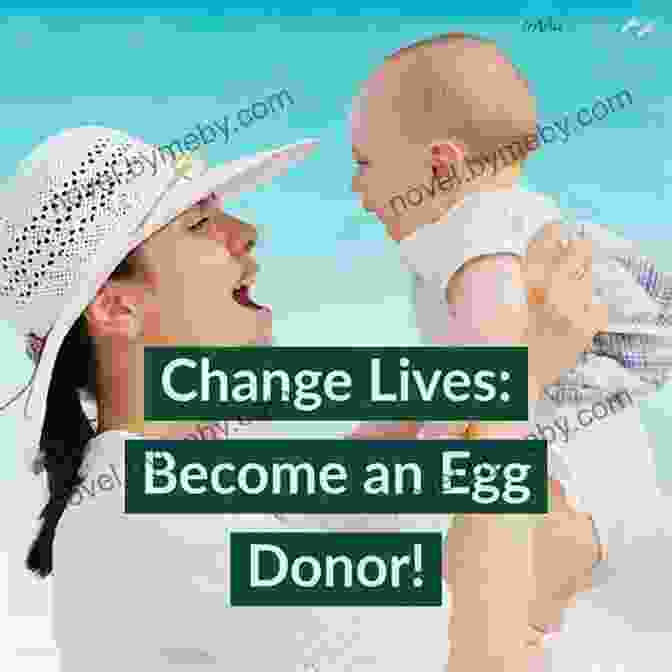
Disclaimer: The information provided in this article is intended for general knowledge and informational purposes only, and does not constitute medical advice. It is essential to consult with a qualified healthcare professional for any health concerns or before making any decisions related to your health or treatment.
4.7 out of 5
| Language | : | English |
| File size | : | 3267 KB |
| Text-to-Speech | : | Enabled |
| Screen Reader | : | Supported |
| Enhanced typesetting | : | Enabled |
| Word Wise | : | Enabled |
| Print length | : | 296 pages |
| Lending | : | Enabled |
Do you want to contribute by writing guest posts on this blog?
Please contact us and send us a resume of previous articles that you have written.
 Book
Book Novel
Novel Page
Page Chapter
Chapter Text
Text Story
Story Genre
Genre Reader
Reader Library
Library Paperback
Paperback E-book
E-book Magazine
Magazine Newspaper
Newspaper Paragraph
Paragraph Sentence
Sentence Bookmark
Bookmark Shelf
Shelf Glossary
Glossary Bibliography
Bibliography Foreword
Foreword Preface
Preface Synopsis
Synopsis Annotation
Annotation Footnote
Footnote Manuscript
Manuscript Scroll
Scroll Codex
Codex Tome
Tome Bestseller
Bestseller Classics
Classics Library card
Library card Narrative
Narrative Biography
Biography Autobiography
Autobiography Memoir
Memoir Reference
Reference Encyclopedia
Encyclopedia Pooja Puri
Pooja Puri Rosicrucian Order Amorc
Rosicrucian Order Amorc Simran Bansal
Simran Bansal Rawi Abdelal
Rawi Abdelal Sasha Abramsky
Sasha Abramsky Ella Blake
Ella Blake Rodney Castleden
Rodney Castleden Stephanie Burgis
Stephanie Burgis Tom Igoe
Tom Igoe Rick Aper
Rick Aper Sally A Lipsky
Sally A Lipsky Robert D Gibbons
Robert D Gibbons Philip Womack
Philip Womack Ray Bella
Ray Bella Tovah Feldshuh
Tovah Feldshuh Richard Carlin
Richard Carlin Ryosuke Takeuchi
Ryosuke Takeuchi Louise Tucker
Louise Tucker Rawdon Wyatt
Rawdon Wyatt Regan Cerato
Regan Cerato
Light bulbAdvertise smarter! Our strategic ad space ensures maximum exposure. Reserve your spot today!
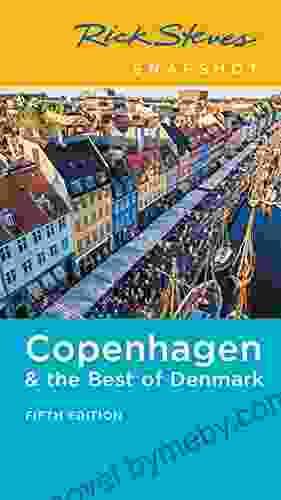
 Gabriel MistralUnveiling the Enchanting Tapestry of Copenhagen: Your Guide to the Best of...
Gabriel MistralUnveiling the Enchanting Tapestry of Copenhagen: Your Guide to the Best of... Alex ReedFollow ·5.7k
Alex ReedFollow ·5.7k Edgar Allan PoeFollow ·2k
Edgar Allan PoeFollow ·2k Junichiro TanizakiFollow ·17.1k
Junichiro TanizakiFollow ·17.1k Arthur C. ClarkeFollow ·9.6k
Arthur C. ClarkeFollow ·9.6k Yukio MishimaFollow ·2.7k
Yukio MishimaFollow ·2.7k Clark CampbellFollow ·12.1k
Clark CampbellFollow ·12.1k Ivan TurnerFollow ·19.6k
Ivan TurnerFollow ·19.6k Dennis HayesFollow ·2.9k
Dennis HayesFollow ·2.9k

 Mike Hayes
Mike HayesArthur Meighen: A Life in Politics
Arthur Meighen was one of Canada's most...

 Bryan Gray
Bryan GrayVindicated: Atlanta's Finest
In the heart of Atlanta, a...

 Houston Powell
Houston PowellHis to Defend: A Captivating Legal Thriller That Will...
An Unforgettable...

 John Green
John GreenUncover the Riveting Tale of "Hunted: Atlanta Finest" - A...
Prepare yourself for a...
4.7 out of 5
| Language | : | English |
| File size | : | 3267 KB |
| Text-to-Speech | : | Enabled |
| Screen Reader | : | Supported |
| Enhanced typesetting | : | Enabled |
| Word Wise | : | Enabled |
| Print length | : | 296 pages |
| Lending | : | Enabled |


